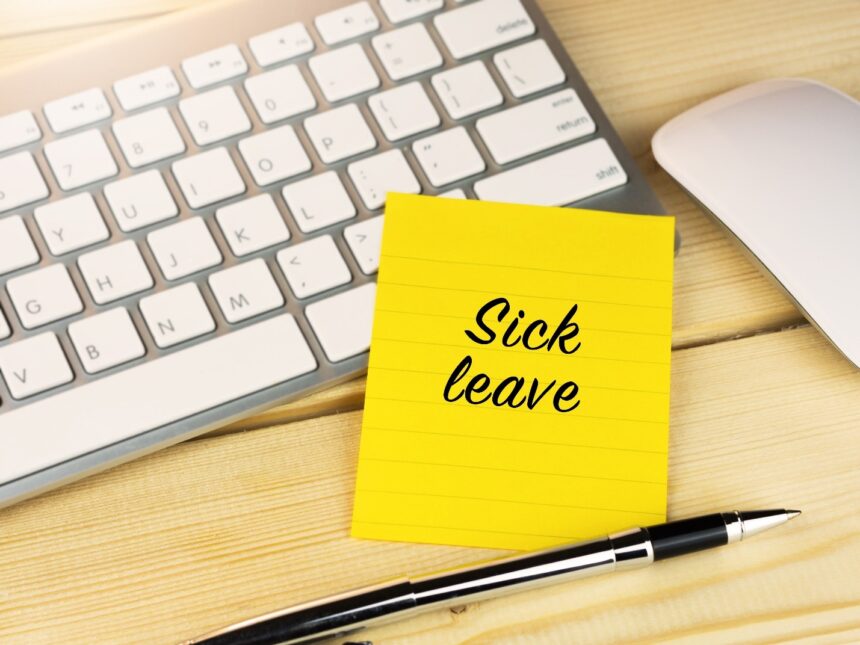An epidemic of unplanned sick days can wreak havoc on any organization. Scheduling goes out the window. Service levels go down. And those who are still working feel the pain of being understaffed.
- 1. Create a Flexible Policy for Requesting Time Off
- 2. Reward Quality, Not Hours Worked
- 3. Institute Flexible Scheduling
- 4. Make Working from Home a Sometimes Option
- 5. Support Mental Health
- 6. Discourage an Overflowing PTO Bank
- 7. Set Clear Expectations for Employees
- 8. Establish Strict Work-Home Boundaries
But the simple truth is that employees will get sick, and if there’s one thing that’s been made critically clear during the pandemic, it’s that we don’t want people coming into work sick and spreading disease.
As a leader, it’s your job to make the best of this fact of doing business. But you don’t have to settle for out-of-control call-ins with these tips to reduce absenteeism
1. Create a Flexible Policy for Requesting Time Off
You want to have as much notice as possible when someone will be out. But if your policy is too strict, employees may use illness to get a day off when they need it for fun, an unexpected appointment at their kid’s school, or even a routine doctor’s visit. Find the balance to see your absenteeism go down.
2. Reward Quality, Not Hours Worked
Avoid rewarding people for working long hours through your words, actions, or management style. People who work long hours may seem more productive. But many studies have shown that people who work overtime actually get less done.
For example:
Working 10 hours, 5 days a week resulted in a 7% loss in productivity. If the same person worked 12 hours, 5 days, they lost 12% productivity. And so on.
Sometimes productivity loss comes in the form of presenteeism, where exhausted people zone out. Other times, it results in absenteeism, where people work themselves sick.
Instead, focus on what matters–the quality of work performed.
3. Institute Flexible Scheduling
If an employee can perform a job role at a different time of day, why not make that happen? Remove the focus on whether someone arrives on time or when they work.
4. Make Working from Home a Sometimes Option
During the pandemic, many employees realized that more employees could work from a home office. But many employers know there’s value to having employees in the office most of the time.
If their job can be done from home, designate a day a week or month that an employee may choose to work from home. Make this day flexible so they can take it when they need it.
5. Support Mental Health
When a person’s mental health starts to suffer, the immune system takes a hit. Physical health declines often follow. So encourage employees to use some of their planned PTO to take a day trip, go to a spa, or do other activities purely for mental health.
Equip your employees with knowledge about how mental health can impact job performance and absenteeism. Make mental health resources available to employees at a discount or free as part of their employment package.
A randomized controlled trial reported in The Lancet found that investing in mental health training for management generated a 10:1 ROI. The managers who got the training saw a significant reduction in unplanned absence among their workers compared to the control group.
6. Discourage an Overflowing PTO Bank
This happens a lot in middle management. But you may also see it in employees who see themselves as future supervisors and managers.
They may rarely take a day off even though their PTO bank is overflowing and they’re losing time off. They see it as a virtue, and they want management to notice their dedication.
But you know how important it is to maintain a work-life balance. These individuals think they’re working toward a promotion. But what they’re doing is wearing themselves out.
7. Set Clear Expectations for Employees
If you don’t establish clear boundaries, you’ll have half of your employees abusing your flexibility and the other half being overly hard on themselves because they don’t know where you’ll draw the line.
Create a policy regarding call-in procedures, number of days missed, and whether they need a doctor’s note so employees always know where they stand.
8. Establish Strict Work-Home Boundaries
This one’s even harder now that so many people are working from home. But we must prevent a blurred line between work time and personal time to avoid burnout. If an employee feels they could be interrupted at any moment during their off days, they never get to actually relax.
And what happens so often is the employee begins to feel entitled to another day off because theirs was interrupted, so they may take a “sick” day to get one.
The country of France considered time off so sacred, they established a law whereby employers must develop a clear policy to avoid interrupting employees during their off time.
Small changes can have a big impact on unplanned sick days. No one solution will work for every employer or employee since job roles vary, but recognizing the fact that creative and effective solutions to this age-old management problem exist may have you rethinking how you address absenteeism.








